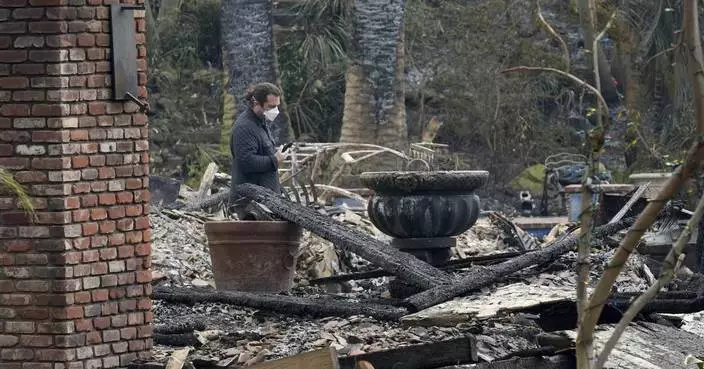HOUSTON (AP) — Golden State coach Steve Kerr said a foul call against his team that led to a loss to Houston on Wednesday night in the NBA Cup was “unconscionable” and that an elementary school referee wouldn’t have made it.
After Stephen Curry missed a 3-pointer with Golden State up a point with 11 seconds to go, Gary Payton II grabbed the offensive rebound, but turned it over with a pass that Jalen Green intercepted. Jonathan Kuminga was then called for a foul against Green while they were on the floor, giving Green a pair of free throws that lifted Houston to the 91-90 victory and a spot in the NBA Cup semifinals.
“That is unconscionable,” Kerr said. “I mean, I don’t even understand what just happened.”
Kerr thought it should have either been a jump ball or the Rockets should have been given the timeout they were attempting to call.
“Our guys battled back, played their (expletives) off and deserved to win that game or at least have a chance for one stop at the end to finish the game,” he said. “And that was taken from us by a call that I don’t think an elementary school referee would have made. Because that guy would have had feel and said: ‘You know what I’m not going to decide a game on a loose ball 80 feet from the basket.’”
Crew chief Billy Kennedy was asked by a pool reporter why the foul was called.
“The defender makes contact with the neck and shoulder area, warranting a personal foul to be called,” Kennedy said.
Kerr ranted for about two minutes about the officiating after the game and complained about what he believed was a clear foul on Curry that wasn’t called earlier.
“The game was a complete wrestling match,” Kerr said. “They didn’t call anything. Steph Curry got hit on the elbow plain as day on a jump shot, just clubbed right on there and no call. So, you’ve established that you’re just not going to call anything throughout the game, it’s a physical game. Then you’re going to call a loose ball foul on a jump ball situation with guys diving on the floor with the game on the line?”
Houston snapped a 15-game skid against the Warriors, winning for the first time in the series since Feb. 20, 2020 when James Harden and Russell Westbrook led the Rockets.
AP NBA: https://apnews.com/hub/nba

Golden State Warriors forward Jonathan Kuminga (00) fouls Houston Rockets guard Jalen Green, left, during the second half of an Emirates NBA cup tournament quarterfinal basketball game in Houston, Wednesday, Dec. 11, 2024. (AP Photo/Ashley Landis)
BANGKOK (AP) — The Biden administration plans to raise tariffs on solar wafers, polysilicon and some tungsten products from China to protect U.S. clean energy businesses.
The notice from the U.S. Trade Representative’s office said tariffs on Chinese-made solar wafers and polysilicon will rise to 50% and duties on certain tungsten products will increase to 25%, effective on Jan. 1, following a review of Chinese trade practices.
“The tariff increases announced today will further blunt the harmful policies and practices by the People’s Republic of China," USTR Katharine Tai said in a statement. "These actions will complement the domestic investments made under the Biden-Harris Administration to promote a clean energy economy, while increasing the resilience of critical supply chains.”
Reports Thursday said U.S. and Chinese officials were meeting this week and next for trade talks ahead of the year's end.
Last week, Washington tightened restrictions on Chinese access to advanced semiconductor technology. Beijing responded by banning exports to the U.S. of certain critical minerals needed to make computer chips, such as gallium, germanium and antimony. It also stepped up its controls on graphite exports to the U.S.
China provides a very large share of most of those materials and the United States has been working to secure alternative sources in Africa and other parts of the world.
Tungsten is another strategically vital metal whose production is dominated by China. The U.S. does not produce it. It's used to make armaments and is also used in x-ray tubes and light bulb filaments, among other industrial applications.
After Beijing announced its ban on exporting gallium and the other materials to the United States, analysts said tungsten was another likely area where China might strike back.
Trade frictions have been escalating ahead of the inauguration of President-elect Donald Trump, who has vowed to impose 60% tariffs on Chinese goods, among other threats. President Joe Biden has said Trump’s promise of broad tariffs on foreign imports would be a mistake.
His administration has kept in place tariffs that Trump imposed during his first term in office, in some cases raising them further, but says it has a more targeted approach.
China has sharply ramped up production of cheap electric vehicles, solar panels, and batteries at a time when the Biden administration has championed moves to support those industries in the U.S.
The U.S. and other trading partners say China improperly subsidizes exports, giving exporters of solar panels and other products an unfair advantage in overseas markets, where its manufacturers charge lower prices thanks to government support. Washington also says China improperly pressures foreign companies to hand over technology.
China accounts for more than 80% of the market for solar panels at all stages of production, according to the International Energy Agency, more than double domestic demand for those products. Its huge economies of scale have made solar power more affordable, but also concentrated the supply chain inside China. The IEA has urged other countries to assess their solar panel supply chains and develop strategies to address any risks.
In early 2018, the Trump administration imposed 30% tariffs on imports of Chinese solar panels. Beijing filed a complaint with the World Trade Organization charging that the U.S. was unfairly supporting electric vehicle purchases.
The investigation that led the USTR to raise the tariffs on solar panels concluded with a report in May that has prompted increases in tariffs on a range of products including electric vehicles, syringes and needles, medical gloves and facemasks, semiconductors and steel and aluminum products, among others.
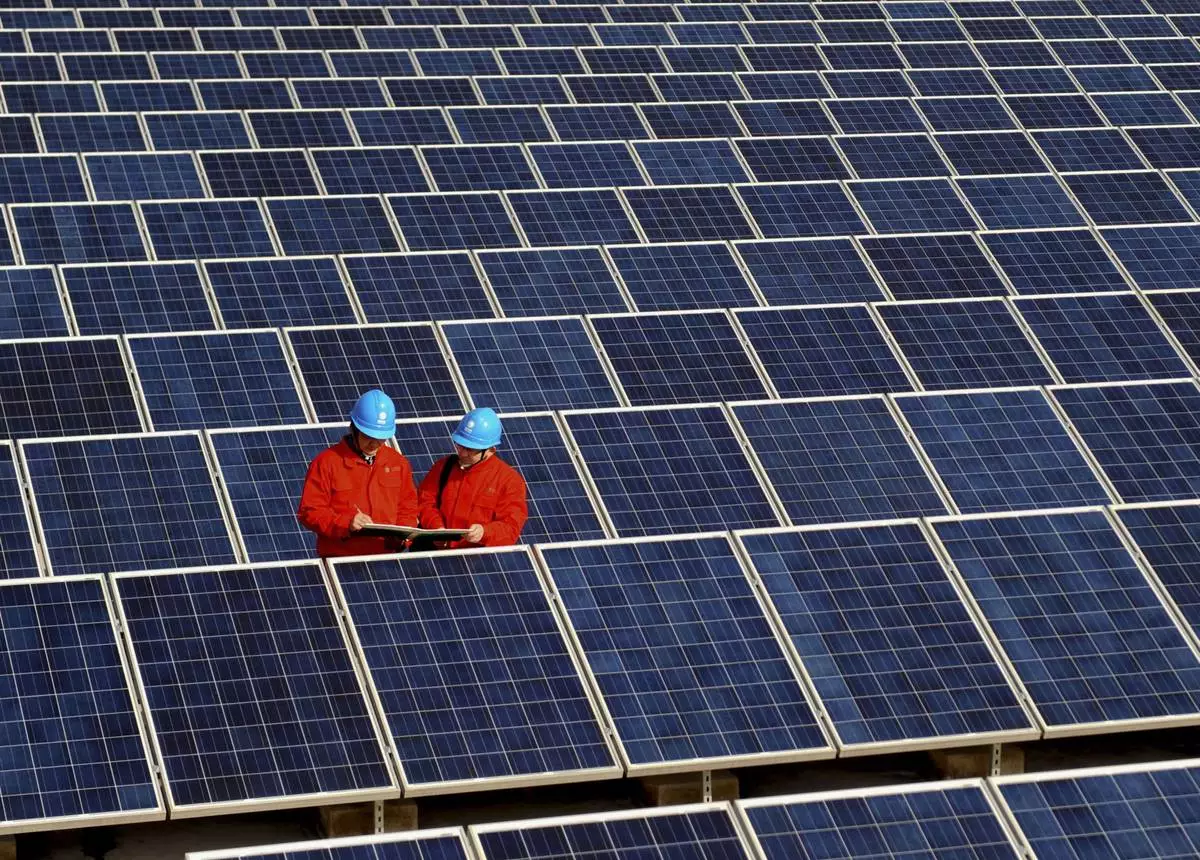
FILE - Workers check solar panels at a solar power station on a factory roof in Changxing, eastern China's Zhejiang province on Feb. 7, 2012. (AP Photo/File)
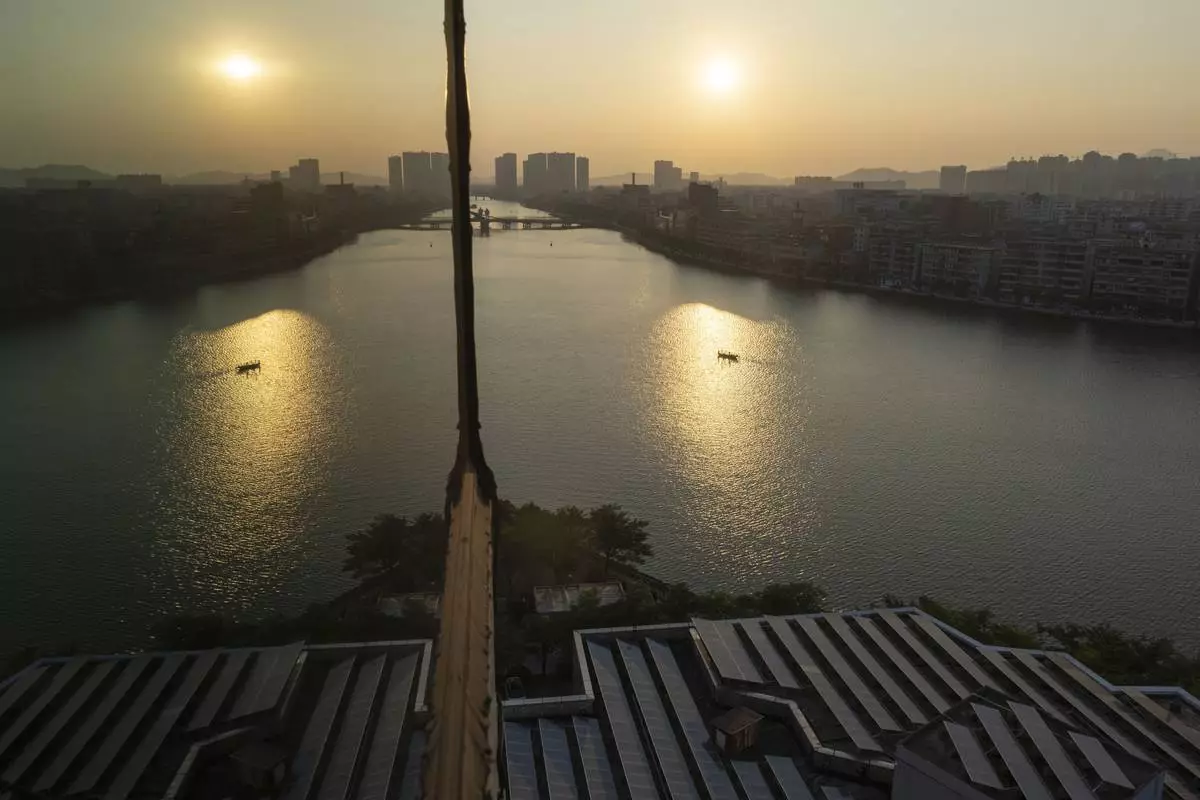
Solar panels on a roof are seen near the sunrise over Jiangmen in southern China's Guangdong province on Friday, Oct. 11, 2024. (AP Photo/Ng Han Guan)
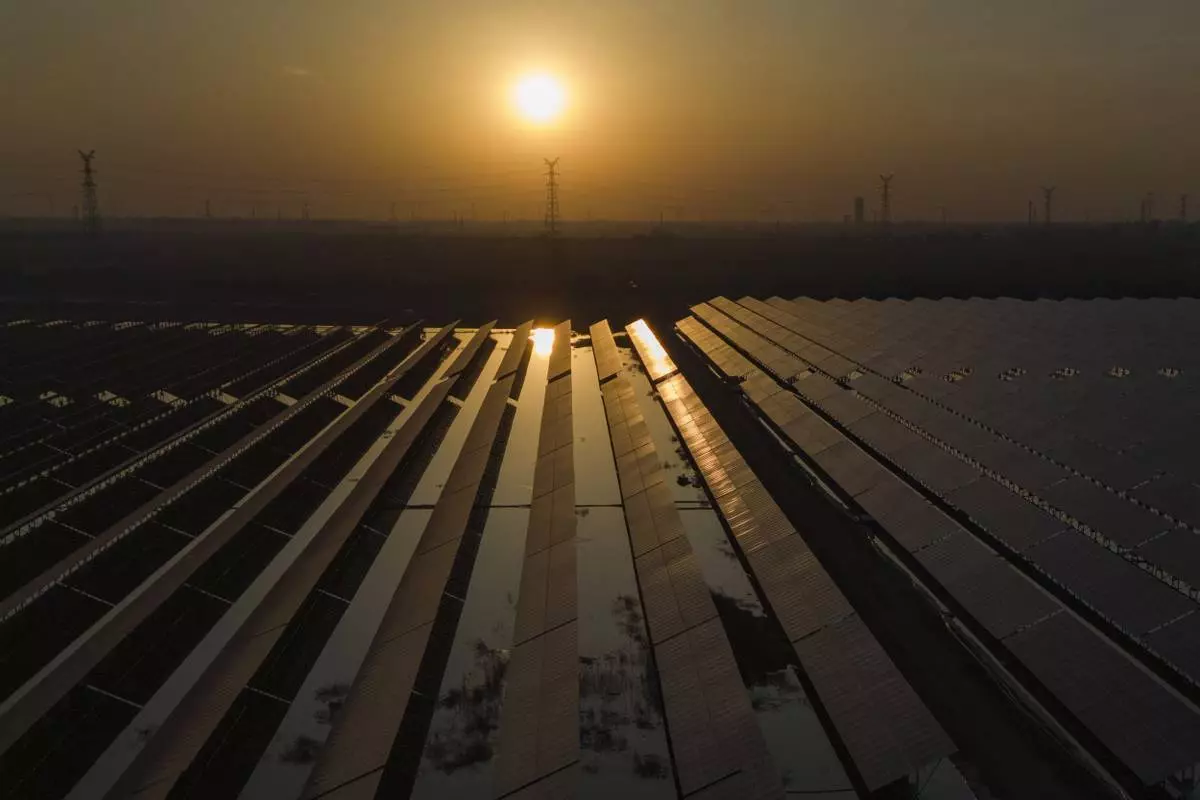
The sun sets over electric pylons along a solar farm near Weifang in eastern China's Shandong province on March 22, 2024. (AP Photo/Ng Han Guan)
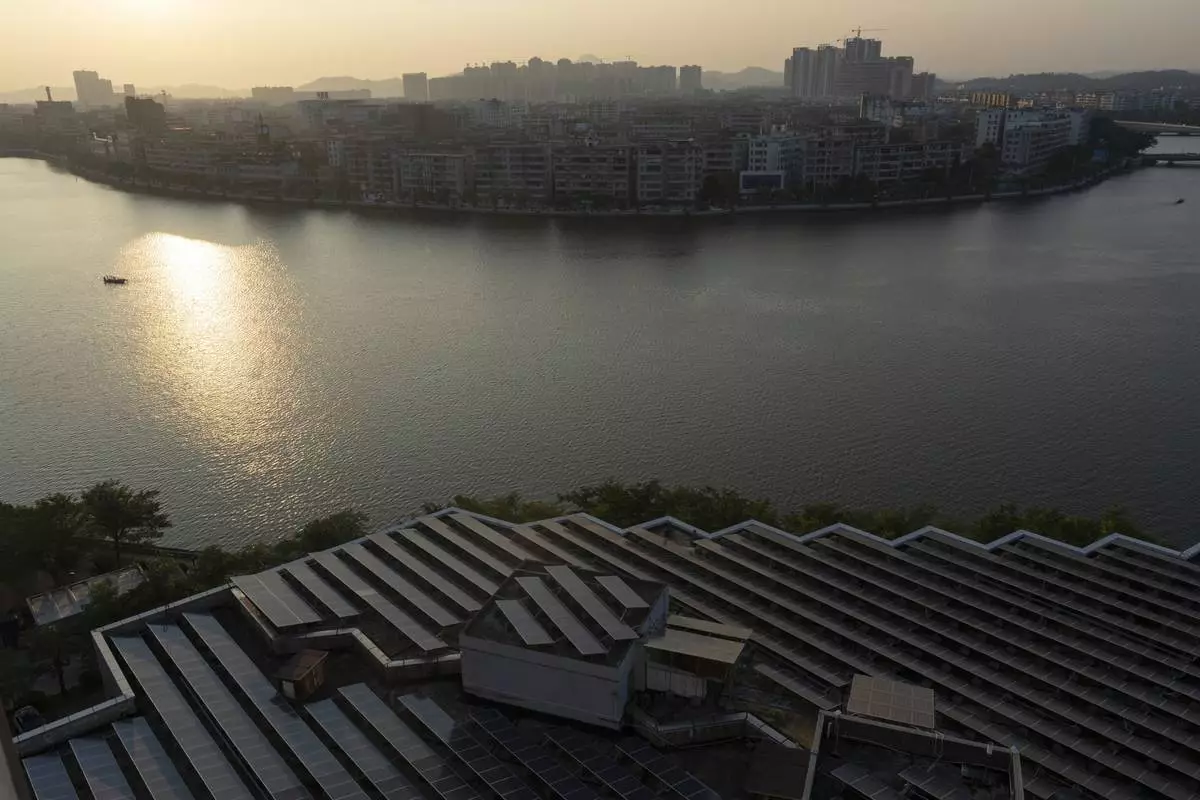
Solar panels on a roof are seen near the sunrise over Jiangmen in southern China's Guangdong province on Friday, Oct. 11, 2024. (AP Photo/Ng Han Guan)










